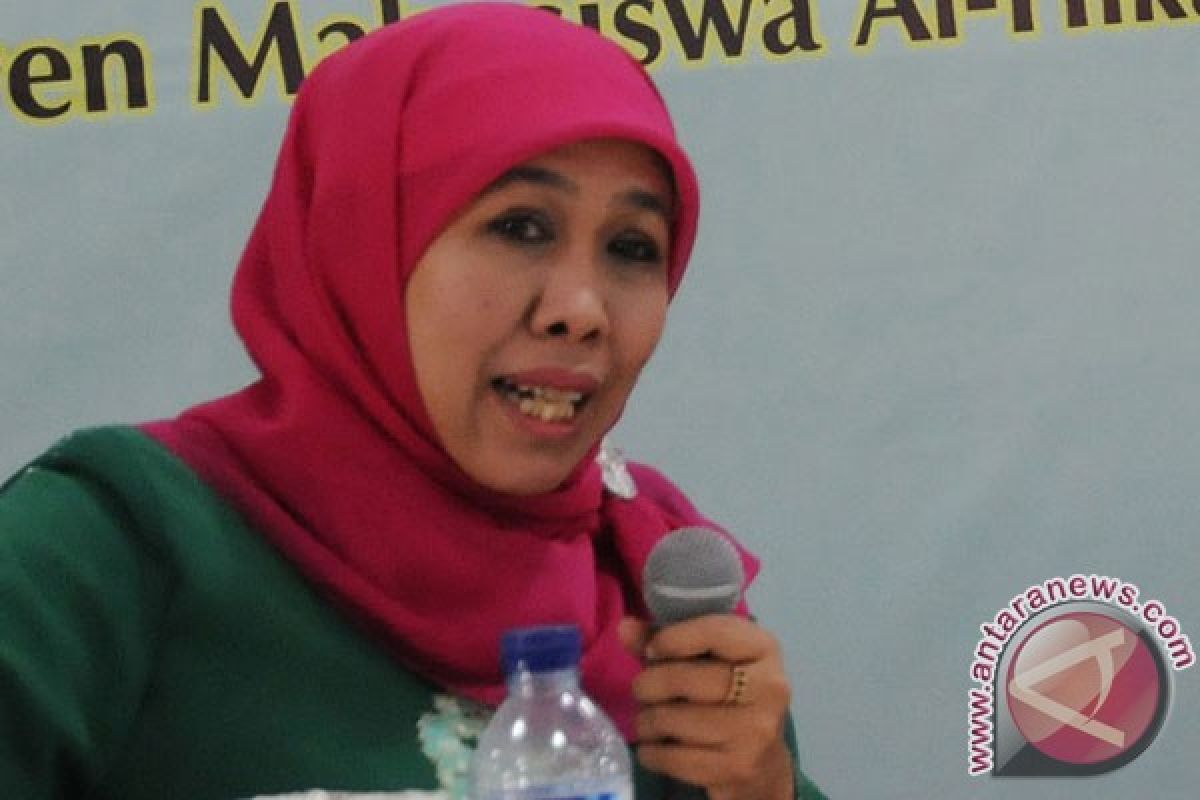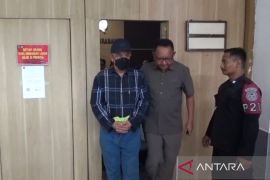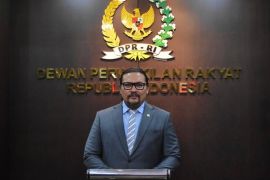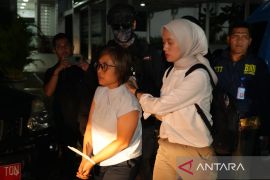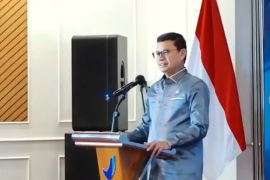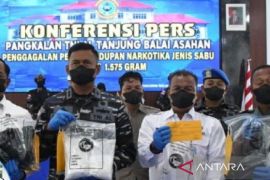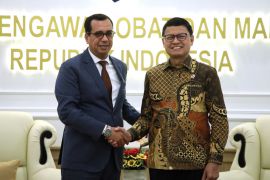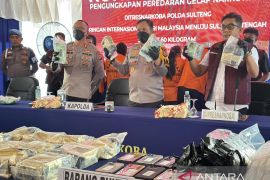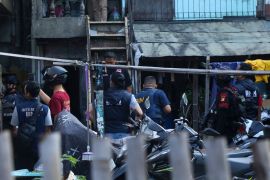The government, in the same time, has prioritized rehabilitation efforts to heal drug users, who are mostly young people falling victims to drug addiction.
"We are very concerned about the present condition. The number of drug users in 2015 has reached 4.5 million people and is showing an increasing trend every year," Social Affairs Minister Khofifah Indar Parawansa said recently.
Of the 4.5 million drug addicts, around 75 percent of them belong to the younger generation. Of the total number, 1.2 million users can no longer be rehabilitated due to their dire condition.
About 30 to 40 people, mostly youngsters, become new addicts every day as a result of consuming illicit drugs in Indonesia, which has seen the number of drug users surge, particularly juveniles.
Drug abuse has grave implications, and therefore, it should be addressed seriously. Drugs can cause physiological and even mental problems.
The National Anti-Narcotic Agency (BNN) has set a target to rehabilitate 100 thousand drug addicts across Indonesia this year, and 400 thousand next year. The government spent Rp50 trillion to deal with drug offenses last year.
The plan is in line with President Joko Widodos instruction to deal with such illicit drug problems, BNNs Rehabilitation Director Brigadier General Ida Utari said recently.
A joint survey conducted by BNN and the University of Indonesia (UI) showed that the number of drug users in the country has been increasing at an alarming rate, he said.
The rehabilitation efforts are expected to significantly reduce the number of these addicts.
The BNN forecast that there will be 75 thousand new addicts every year. The agency hoped that Indonesia will become free of drug addicts after implementing rehabilitation programs for a period of 12 years.
Indonesia needs to have at least 1,000 rehabilitation centers to accommodate over four million drug users. But, the problem is that the country has only 90 rehabilitation centers, or less than 10 percent of what needed.
Therefore, to support the acceleration of the rehabilitation program, the BNN has established cooperation with various parties, including community-based rehabilitation institutions, regional administrations and hospitals.
"We have more than two thousand hospitals across Indonesia. If each provides 10 beds, the target will be achieved. We also have educational institutions and military barracks that can be used when they are not holding any activities," BNN spokesman Sumirat Dwiyanto stated on Feb. 20, 2015.
He also urged the regional administrations to provide places that can be used to accommodate drug addicts undergoing rehabilitation treatment.
Drug-related crimes are quite serious in Indonesia as the country has become a targeted market for international drug trafficking.
Indonesia has recorded the largest number of narcotics transactions in the ASEAN (the Association of Southeast Asian Nations) region, he added.
Narcotics transactions across the ASEAN region have been worth some Rp110 trillion, of which Rp48 trillion worth of transactions were recorded in Indonesia, thereby making the country the highest-ranked in narcotics transactions.
The BNN has destroyed seized drug evidence comprising methamphetamine and ecstasy pills throughout February 2015.
"The evidence destroyed included 5,764.10 grams of crystal methamphetamine and 1,490 ecstasy pills," deputy head of the BNNs public relations division Slamet Pribadi said on Feb 25.
The evidence was seized in Palmerah, West Jakarta, on Tuesday (February 3) and in Kemanggisan, West Jakarta, on Saturday (February 7).
Besides, the anti drug directorate of the Jakarta metropolitan police recently arrested a Nigerian identified as TC believed to be a drug ring leader operating between Jakarta and Hong Kong.
TA was arrested on charge of being in possession of 6 kilograms of methamphetamine sent from Hong Kong, director of the police narcotics detective division Sr Comr. Eko Daniyanto said.
Taking a firm stance against drug dealers in January, the government of President Joko Widodo executed six convicted drug dealers on death row.
In January, Indonesia executed convicts from Malawi, Nigeria, Vietnam, Brazil, the Netherlands, and one of its own citizens. The executions prompted Brazil and the Netherlands to recall their ambassadors in protest.
The government will soon execute 11 other convicts sentenced to death, including nine drug convicts, two of whom are Andrew Chan and Myuran Sukumaran from Australia.
The two Australians were members of the "Bali Nine" drug ring, a group of drug traffickers who were arrested on April 17, 2005, in Bali while attempting to smuggle out 8.3 kilograms of heroin worth Rp40 billion to Australia.
The Peoples Consultative Assembly (MPR) has thrown its weight behind the governments policy to execute drug convicts on death row.
"(Drug offenders) deserve death penalty because we are now in a state of drug emergency," MPR Chairman Zulkifli Hasan said on Feb 25.
The circulation of drugs had victimized not only youths and children but parents as well. In fact, not only civilians but also military and police personnel had also fallen victim to drug circulation, he said.
"Anybody can be victimized. Therefore, (drug offenders) must be sentenced as severely as possible to give them deterrent effect," he said.
He also asked the government to ignore the request from the Australian and Brazilian governments to cancel the execution of their citizens who are on death row on the ground the policy was closely related to the legal sovereignty of the state.
(F001/b003/B003)
(F001/F001/B003)
Reporter: Fardah
Editor: Jafar M Sidik
Copyright © ANTARA 2015
